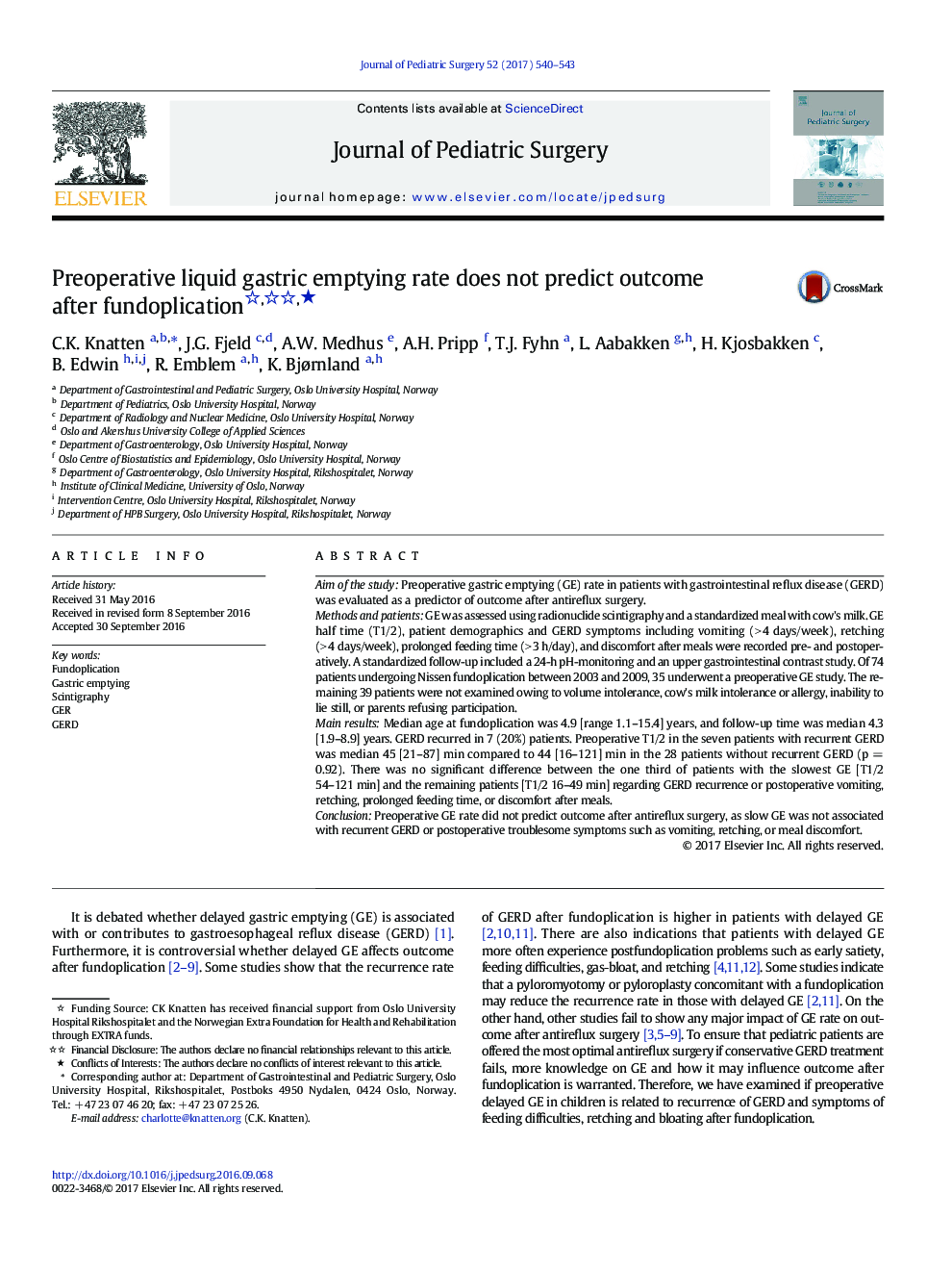| Article ID | Journal | Published Year | Pages | File Type |
|---|---|---|---|---|
| 5718129 | Journal of Pediatric Surgery | 2017 | 4 Pages |
Aim of the studyPreoperative gastric emptying (GE) rate in patients with gastrointestinal reflux disease (GERD) was evaluated as a predictor of outcome after antireflux surgery.Methods and patientsGE was assessed using radionuclide scintigraphy and a standardized meal with cow's milk. GE half time (T1/2), patient demographics and GERD symptoms including vomiting (> 4 days/week), retching (> 4 days/week), prolonged feeding time (> 3 h/day), and discomfort after meals were recorded pre- and postoperatively. A standardized follow-up included a 24-h pH-monitoring and an upper gastrointestinal contrast study. Of 74 patients undergoing Nissen fundoplication between 2003 and 2009, 35 underwent a preoperative GE study. The remaining 39 patients were not examined owing to volume intolerance, cow's milk intolerance or allergy, inability to lie still, or parents refusing participation.Main resultsMedian age at fundoplication was 4.9 [range 1.1-15.4] years, and follow-up time was median 4.3 [1.9-8.9] years. GERD recurred in 7 (20%) patients. Preoperative T1/2 in the seven patients with recurrent GERD was median 45 [21-87] min compared to 44 [16-121] min in the 28 patients without recurrent GERD (p = 0.92). There was no significant difference between the one third of patients with the slowest GE [T1/2 54-121 min] and the remaining patients [T1/2 16-49 min] regarding GERD recurrence or postoperative vomiting, retching, prolonged feeding time, or discomfort after meals.ConclusionPreoperative GE rate did not predict outcome after antireflux surgery, as slow GE was not associated with recurrent GERD or postoperative troublesome symptoms such as vomiting, retching, or meal discomfort.
